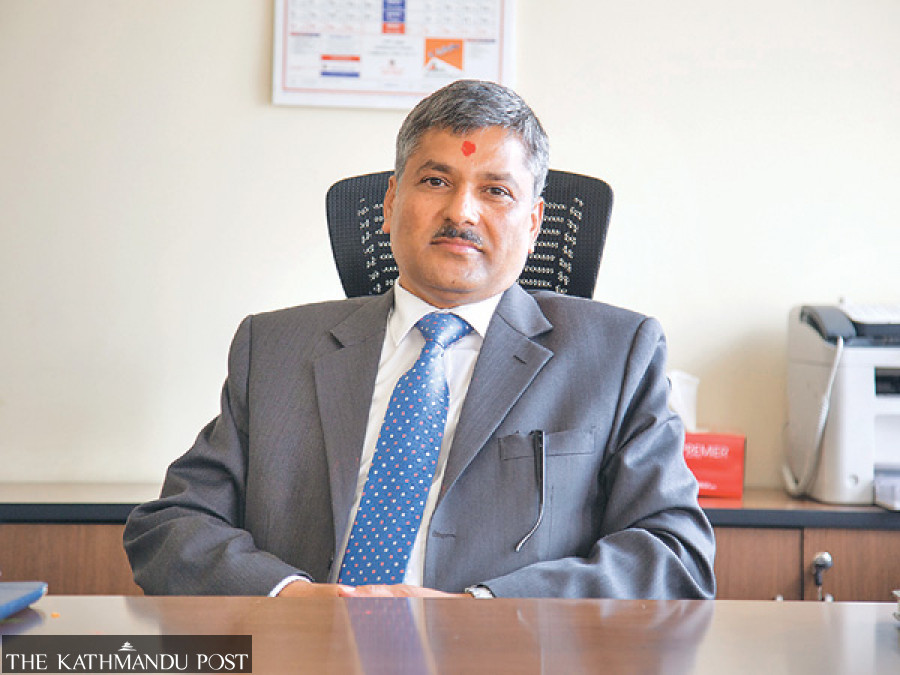Politics
Governor blames regulatory gaps for cooperatives crisis
Identifies unlimited expansion, unregulated deposits, undefined operational boundaries as contributing factors.
Purushottam Poudel
The preliminary findings of the parliamentary special probe committee investigating crisis-ridden cooperatives suggest that the cooperative sector is on the brink of collapse, according to a committee member.
“As the government bodies that were supposed to regulate the cooperatives sector failed to efficiently perform their duties, the situation has now gone beyond our control,” a committee member told the Post on the condition of anonymity. The committee has seven members.
“This problem could pose a challenge to the overall economy,” the member further said. “The probe committee is yet to reach its final conclusion.”
The special probe committee, which began its work a month ago, reached this assessment after a month-long discussion with top officials from government agencies, as well as chiefs and members of various panels formed so far by the government to look into problems involving cooperatives.
The special parliamentary probe, which was formed on May 28, has been given three months to complete its task and submit a report to the government. It held its eleventh meeting on Monday.
The cooperatives operating within their defined limits are functioning efficiently, the member said. “However, those that breached their bounds have faced problems.”
After weeks of negotiations between the ruling and opposition parties, a seven-member committee led by CPN-UML lawmaker Surya Thapa was constituted to investigate the embezzlement of deposits in dozens of cooperatives across the country. Earlier, the Nepali Congress, the main opposition party, disrupted parliamentary proceedings for months, demanding such a committee.
Besides Thapa, other members of the committee are Sarita Bhusal of the UML; Badri Pandey and Ishwari Devi Neupane of the Congress; Lekh Nath Dahal of the CPN (Maoist Centre); Shishir Khanal of the Rastriya Swatantra Party; and Dhruba Bahadur Pradhan of the Rastriya Prajantara Party.
The committee had started drafting its work procedures on June 5 and began investigations on June 18.
Numraj Khanal, an undersecretary at the Parliament Secretariat, says that until now, the special probe committee has tried to understand the conceptual framework of cooperatives after discussing the issue of misappropriation of cooperatives funds with various stakeholders.
“During this period, we have discussed the issue with officials from regulatory bodies of cooperatives and with law enforcement agencies and tried to understand their findings on the matter,” Khanal told the Post. “Likewise, we also have discussed the issue with chiefs and representatives of various commissions the government formed in different times starting since 1990.”
From 1990 to 2024, the Nepal government formed at least seven different committees to investigate the cooperatives sector’s problems and recommend solutions.
The parliamentary special committee held a discussion with Maha Prasad Adhikari, the governor of Nepal Rastra Bank, on Monday.
Governor Adhikari said that the current problem in cooperatives is clearly the result of the government allowing an unlimited number of cooperatives to operate throughout the country, said Surya Bahadur Thapa, the coordinator of the Parliamentary Special Probe Committee.
Thapa said that Governor Adhikari pointed out a few more reasons.
“Allowing cooperatives to run without defining their geographic boundaries, permitting them to collect deposits without any limit, and lack of effective regulation are some other reasons behind the problems seen in the cooperatives sector,” Thapa quoted Adhikari as saying.
Adhikari called for setting up a powerful regulatory body to oversee the sector.
The special committee has yet to start investigation into the Gorkha Media Network, though it falls under its jurisdiction. The media company has been accused of rerouting money from various cooperatives to the now dysfunctional Galaxy 4K television, where Home Minister Rabi Lamichhane used to be the managing director.
“The panel is yet to study the details related to the Gorkha Media Network,” under-secretary Khanal said.
Before this, the committee had on July 4 summoned Secretary of the Ministry of Home Affairs Ek Narayan Aryal, and the Inspector General of Police (IGP) Basanta Bahadur Kunwar, among other officials, to discuss the cooperatives under investigation.
Apart from Home Secretary Aryal and IGP Kunwar, Central Investigation Bureau (CIB) Chief Shyam Gyawali and Crime Investigation Department Chief Tek Bahadur Tamang were also invited to the committee on the day.
Thapa said they discussed the matter in detail with the home secretary, the IGP, and other senior security officials.
According to a member, some committee members grilled IGP Kunwar about his previous statement in the State Affairs and Good Governance Committee. Speaking at the parliamentary committee meeting in the last week of March, the Nepal Police chief had claimed that police had found no evidence of Home Minister Lamichhane’s involvement in cooperatives fraud.
“When I made the statement in the State Affairs and Good Governance Committee about the home minister, his involvement in the scam had not been disclosed,” a committee member quoted IGP Kunwar as saying at the special committee meeting.
Another member of the probe committee, Shishir Khanal, said the IGP said he was not under any pressure to give a statement about Home Minister Lamichhane. Khanal is a lawmaker from the Lamichhane-led Rastriya Swatantra Party.
“The IGP said that he spoke on the basis of facts, and that no information regarding Home Minister Lamichhane’s involvement in the cooperatives scam had been found till the day he made the statement.”
In the course of seeking inputs from various stakeholders, the committee on July 2 wrote to all the national political parties seeking their suggestions on how to resolve the cooperatives crisis.
Two weeks earlier, the panel had asked nine cooperatives on its list (under Schedule 2 of ToR) to submit details of their financial transactions.
The special committee is mandated to investigate troubled cooperatives, their legal and institutional objectives, financial systems, regulations, supervision, and transparency.
Another task of the panel is to recommend measures for immediate return of savings to the depositors of the problematic cooperatives identified by the Department of Cooperatives and the crisis-ridden cooperatives management committee.




 10.12°C Kathmandu
10.12°C Kathmandu















